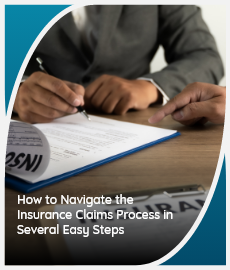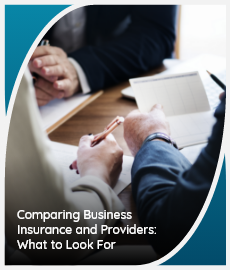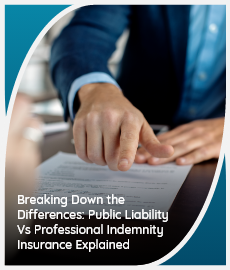What Kind of Training do Insurance Brokers Undergo? A Brief Guide to Understanding Professional Requirements and Ongoing Responsibilities
Posted on May 21, 2024 | by | Posted in Insurance


Although many of us might assume that insurance is a relatively new phenomenon in the evolution of human history, its roots go back much further than expected. As early as 1750 B.C., the Babylonians exhibited a code of conduct cited as the earliest antecedent of the practice. It is only in the 14th Century, however, that we find the first actual insurance policies similar to those we recognise today, created in early-Renaissance Genoa. This article examines the modern-day insurance industry and how insurance brokers must be trained to operate effectively within it.
What service do insurance brokers provide?
Before we analyse the educational and training requirements licenced insurance brokers must adhere to, it is helpful to provide a basic description of their role, which is as follows:
- An insurance broker acts as an intermediary or liaison between a potential client and their insurance provider. They aim to secure the optimum policy for each individual, negotiate terms and prices, and represent the consumer in all interactions. Although insurance brokers typically work on commission, a fee may also be required to engage their services.
The pivotal role of insurance brokers
Although increased access to the online realm has fundamentally changed how the insurance industry is advertised and accessed by consumers, the role of professional insurance brokers should not be underestimated. The power of individual consumers to drive bargains and analyse the small print of complex insurance policies is significantly diminished without the assistance of professional insurance brokers. The service they provide almost always pays for itself in the long run. Through an in-depth understanding of the state of the industry at any given time and mutually beneficial relationships with insurance providers, they can often generate deals and additional caveats that solo consumers cannot hope to emulate.
Why do insurance brokers need training?
Like so many professional roles in our societies, developing a successful career as an insurance broker requires approaching the subject from several directions. A deep, nuanced understanding of the industry is essential to serve their clients effectively and maximise the benefit of their services.
As times change, so do trends, legal requirements, potential pitfalls, and many other factors. Without robust, comprehensive training, the chances of getting to grips with the complexities of insurance policies and how the systems that promote and operate them work, there is almost no chance of success. Nothing will test client loyalty and the prospect of repeat custom faster than incompetence, especially if it costs the client money or creates unnecessary issues and associated stress. Several proven ways to enhance any career in insurance broking include:
- Work experience
- Consistently honing skills
- Continued training and education
- Creating robust, professional working and client relationships
It is not just in the best interests of individual insurance brokers to continuously better themselves and their understanding of the industry that employs them. It is also of great advantage to anyone who engages in their services, either as an employer in a firm of brokers or as a client seeking exceptional outcomes.


What kind of training do insurance brokers undergo?
The primary educational and legal requirements to become an insurance broker vary depending on the country where they practice their trade. In Australia, the educational and training requirements are as follows:
- Complete a Certificate III in insurance broking
- Earn an Australian Financial Services Licence
The Australian Certificate III covers everything from the basic concepts and mechanisms that drive the industry to detailed specifics and key components, including:
- Licensing and regulation
- Insurance products and services
- How insurance broking functions (theoretically and practically)
- Handling insurance claims
- Advising clients with complex needs
- Marketing and practice-management skills
- Compliance regulations
Perhaps counter-intuitively, a bachelor’s degree is not essential to make one’s way successfully in the insurance broking world. It pays to remember, however, that competition in the industry can be fierce, and every advantage an applicant can avail themselves of is sure to be advantageous. Natural subjects to study that will ease passage into the insurance industry include:
- Finance and economics
- Business studies (including business administration)
- Accounting
- Marketing
- Communications
- Sociology and psychology
Additional desirable qualifications and attributes
- Post-certificate diploma in insurance broking
- Extensive work experience (via internships and trainee positions)
- Advanced digital training
Staying ahead of the curve with ongoing education and career development
As a bare minimum, any professional insurance broker needs to remain constantly aware of the state of the industry and note any changes or trends. Only through vigilant, concerted effort can any professional broker claim to be in a position to serve their clients’ best interests and act as the keystone that holds their insurance provisions together.
The critical nature of technology and how it affects insurance brokers
As in many walks of life, technological advancements have revolutionised the insurance industry and its associated careers. The ease with which consumers can compare and contrast large numbers of insurance policies online is a game-changing development that cannot be undermined or reversed.
Insurance brokers must prove that their expertise, professional integrity, industry relationships, and reputation are worth investing in and that they will show demonstrable results. This can only be achieved if the brokers intimately understand the technology in question and recognise its limitations and how to improve them. Offering a personal touch is an old-fashioned concept that many individuals still desire and respect, and counteracting the impersonal nature of searching for policies online is as good a place to start as any.
Conclusion
We hope this article has helped clear up some of the misconceptions about insurance brokering and how to train and develop a career in the industry effectively. The bottom line is that there can be no resting on one’s laurels once initial certifications and requirements are met. In such a constantly shifting, complex landscape, the only way to rise above the competition is to stay ahead of the game every step of the way. We can all benefit from lifelong learning in many aspects of our lives, and being a professional, highly sought-after insurance broker is no exception.
Contact us
If you want to learn more about Matrix Insurance, how we conduct our daily business, and our non-negotiable standards and ethical practices, please do not hesitate to contact us. We have an incredible team of trained, knowledgeable staff standing by to help however possible and offer all the advice, information, and guidance you need.
















